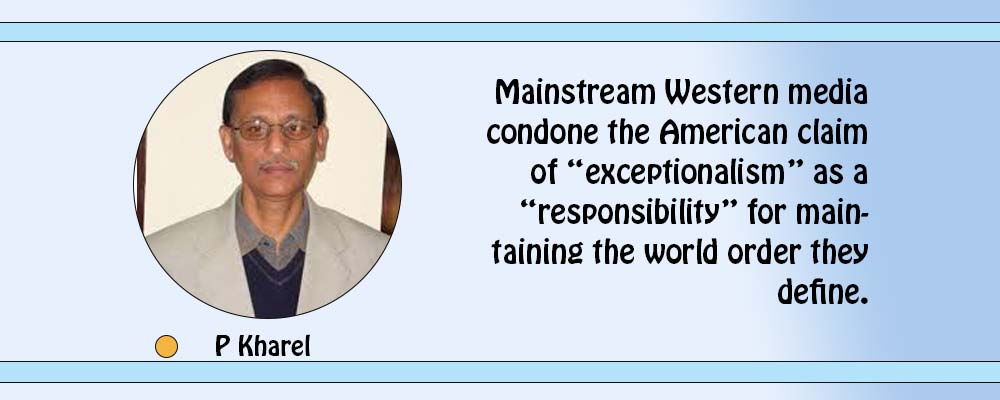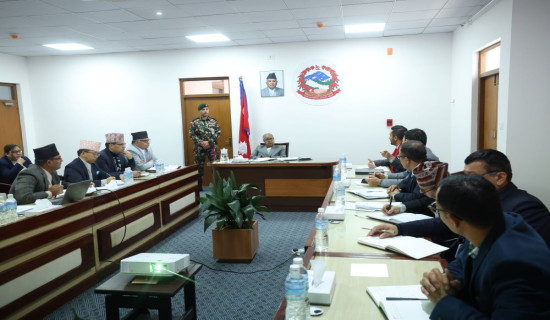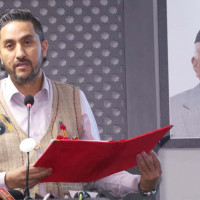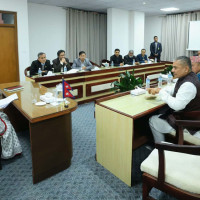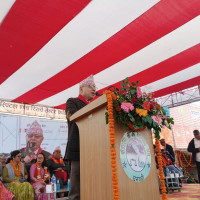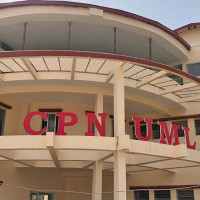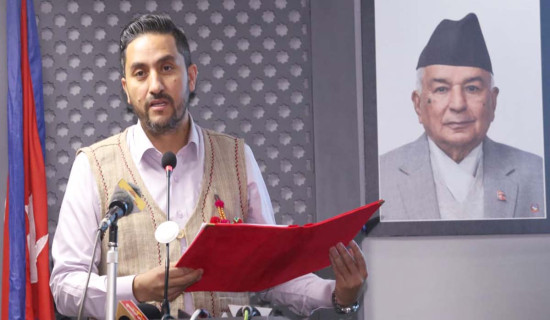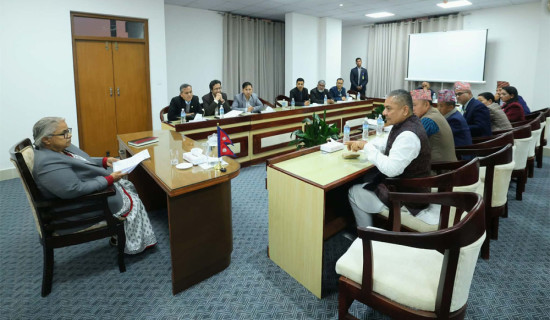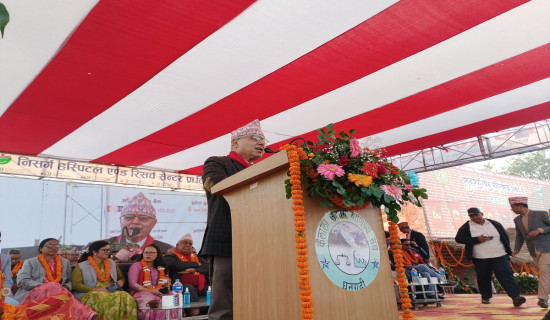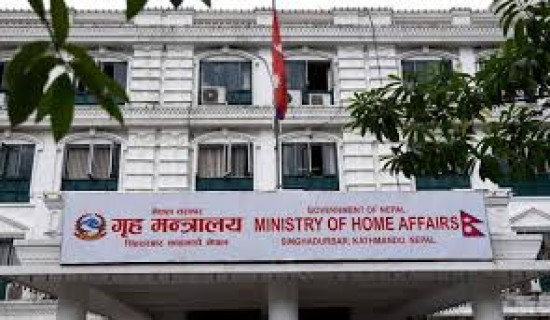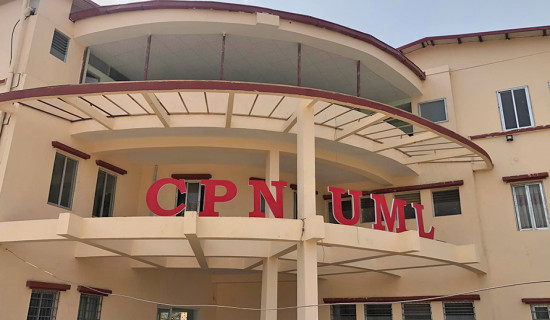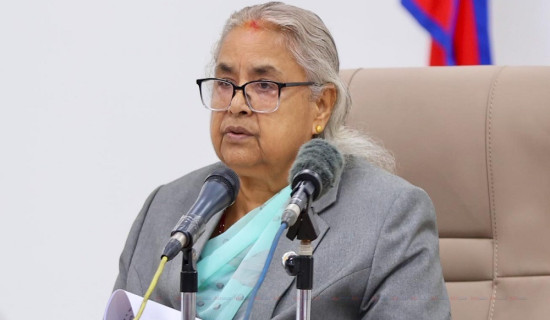- Tuesday, 9 December 2025
The Language The Leaders Spurt
Attention for a new era of diction use in international relations. Donald Trump, the President of the United States, is inserting dictions in the book of diplomacy that his own fellow citizens might have abhorred previously. Sworn in as the presiding occupant of the White House in January this year, for a second term after an interruption of four years, Trump’s overuse of rhetoric like “Make America great again”, “fantastic” and “great” might be taken as something he approves of but with no guarantee that he will maintain the same stance and tone the moment a related issue goes against his expectations.
If unhappy, there is no wrath or cavalier talk as that of a disappointed and vengeful Trump, now 79 years old. After declaring a tariff war on virtually all foreign exporters to the US, he claimed that the European Union was created to “screw” America. In April, Trump claimed that scores of countries, on account of his “reciprocal tariff” policy, had queued in to “kiss my ass” for trade deals. He seemed to believe the tactics to be a sure shot route to “make America great again”.
His deputy, JD Vance, was more Trump than Trump himself in an unconvincing statement rubbishing China’s trade transactions. He vainly tried berating the communist country by saying: “We borrow money from Chinese peasants to buy things Chinese peasants manufacture. That is not a recipe for economic prosperity.” No prominent leader within and outside the US endorsed Vance’s spite. As if on cue, a section of the White House press corps tried emulating the Trump-Vance team when Ukraine’s President Volodymyr Zelenskyy when a reporter asked whether he owned any suits for dress.
T-shirts are the Ukrainian president’s trademark during public functions or when meeting with foreign leaders—something he generally maintains even after the comic gestures the hosts exhibited at the White House.
Anything won’t work
Wrong is the attitude that anything goes fine, if a staggering economy with mighty military strength is writing and rewriting the rulebook for others to comply with, though without reciprocity. Such thinking and public outbursts, especially from elected leaders of a nation claiming to be the world’s “greatest” democracy and acting as if armed with the exclusive authority to set global wrongs aright, are sure to suffer consequences sooner or later. The price extracted can be sharp, deep and long.
Perhaps an illusionary lull might occur for a while before the victims of the verbal onslaught, in full view of the world, claim the toll for extra payback time called a severe backlash. Vance’s own less-than-secret quest for obtaining the Republican Party’s ticket for the 2028 presidential contest to the White House will be haunted by the brash and unruly public demeanour against foreign leaders of even long-time allies. In the US, the Trump administration moves to make English language proficiency tests mandatory for truck drivers, thousands of whom are nationals whose mother tongue is some other language.
Most of the noted American academics and top-notch universities have not yet summoned the courage to make their critical comments public. Control of language controls the narratives on various aspects of life. Content control means communication channel capture. Language of prestige in every age, community, region and state throughout history. During the Middle Ages, French was the language of power in England and many other European countries. A major power in a region commands such influence almost everywhere. In England’s two universities, Cambridge and Oxford, English was not allowed to be spoken in the Middle Ages. The average nobility was scorned for speaking English at the dinner table.
During the Rana regime in Nepal, the top echelon of especially political hierarchy used English names and words within the palace premises. Hindi was for long spoken by some elite sections and others tried emulating them. Al-Jazeera television channel called the “fall of a dictator” about Prime Minister Hasina Wajed after she fled Bangladesh at the height of massive student protests demanding her ouster and arrest on charges of corruption and other crimes.
Like its peers in the Western world, the Qatari TV jumped to label Wajed “a dictator” only after her ouster. There are quite a few other dictators in West Asia as well as other parts of the world, who are not labelled as such. Al-Jazeera and its other international peers hunt not live tigers but severely wounded and trapped targets. Foreign news channels never mention Trump as a “strongman” with a penchant for arm-twisting other countries and leaders. But they do so without qualms when describing foreign leaders with whom Washington does not see eye to eye on issues the latter considers of its strategic interests.
Contradictory conditions
Indian news channels copy Western channels in this respect. NDTV, in a March 31 news bulletin, described Bangladesh Sangbad Sanstha as Bangladesh’s state-run news agency. The irony—or should one say, bias—is that virtually all Indian news media do not mention any “state media” in their own country, whether broadcasting institutions or news agencies.
And what do news outlets in Nepal do? The wholesale use of mostly the Associated Press news agency, originating in the US, and partly the French agency, AFP, without editing anything, means the local media are as impartial or as biased as the two foreign news organisations. Here, I am not commenting on the items that find space or those that don’t in these two agencies’ bulletins. Poking at the weak but cowering when dealing with someone strong is media cowardice: going soft on the strong while hitting hard on the obvious weak.
In a June edition, The Economist weekly commented: “Myanmar is a demonstration of China's hegemony in action.” The 182-year-old magazine has not matured to mention whether there are any hegemons in Europe or the Americas. It does not find any hegemon among European powers or the “Five Eyes” (Australia, New Zealand, the UK, the US and Canada). Mainstream Western media condone the American claim of “exceptionalism” as a “responsibility” for maintaining the world order they define.
(Professor Kharel specialises in political communication.)

